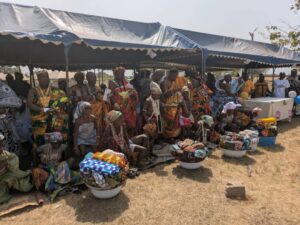
Blood sample with respiratory coronavirus positive
By Ankrah Portia
The Covid-19 pandemic, which first became public in December 2019 in China, has become a global pandemic killing many people across the world. The virus, due to its highly contagious nature, requires that individuals practice social distancing and observe some basic protocols. So deadly is this virus that a lot of social gatherings have been suspended, with the most affected being churches and schools.
Most countries went on lockdown in order to curb the spread of the virus. This has greatly affected many aspects of life, especially the health, banking, tourism and sports sectors. In fact, it will not be far-fetched to say life has somewhat come to a standstill.
Ghana and e-learning
Ghana was not left out as the President of the Republic, Nana Addo Dankwa Akufo-Addo, declared a partial lockdown for three weeks in some parts of the country.
The spread of the virus has led to siege on educational activities all over the world, leading to the alternative of resorting to the use of online learning. The rate at which the virus has been spreading gives no indication that it would be ending soon.
Online learning methods have therefore been adopted from the basic level to the tertiary level as a solution to the lapses in the educational sector during these abnormal times. Following this drift, teachers and students now make use of online platforms such as Zoom, Google classroom, Skype, WhatsApp and so on.
Virtual classrooms
Using virtual classrooms is to ensure that students do not stay idle during the lockdown period till schools resume. Lecturers relay information and assignments to students as well. In some universities, mid-semester exams were conducted online. The system has finally been adopted fully as a means of learning in the country as all universities are putting measures in place to conduct end-of-semester exams online. Students cannot end an academic semester without being examined or assessed.
The online learning has helped lecturers complete their course outlines and made use of their time at home effectively.
Some people have some reservations about using this method of teaching and learning. According to them, it cannot be described as the most effective way of teaching and learning. Students sometimes find it difficult to access these online learning platforms due to internet problems. This has created a huge problem for most of the students in the rural areas.
Statistics show that more than 300 courses have been created on the system, attracting close to 2,000 students nationwide. Access to the platform is however difficult, looking at the number of students enrolled in these e-learning environments.
Effectiveness
Students need to buy data to stay connected to internet to have access to ongoing classes. That costs a lot. Some institutions made the effort to go into negotiations with some network providers, such as AirtelTigo, to reduce the cost of data consumed by students for educational purposes.
E-Learning methods can be highly effective at improving the academic work in our schools. However, developing the communicational skills of the students is not considered during online lessons. Due to the lack of face-to-face communication among peers, students and lectures in an online setting, most students usually find it difficult to understand what is being taught.
E- learning methods cannot be fully assessed. Lectures cannot tell if students are really paying attention or even taking part in the ongoing lectures. Due to the lack of the face-to-face interaction, most students lack self-control and tend to be distracted by all sorts of activities.
Learning from home also comes with its own distractions, including power outages, distractions, among others.
However, these challenges are quite understandable because Ghana is new to these e-learning.
But one thing we are all glad is that the pandemic has proven to us that there are more innovative ways for teaching and learning. Necessity is, indeed, the mother of invention.
The writer is a level 300 student at the Ghana Institute of Journalism.








